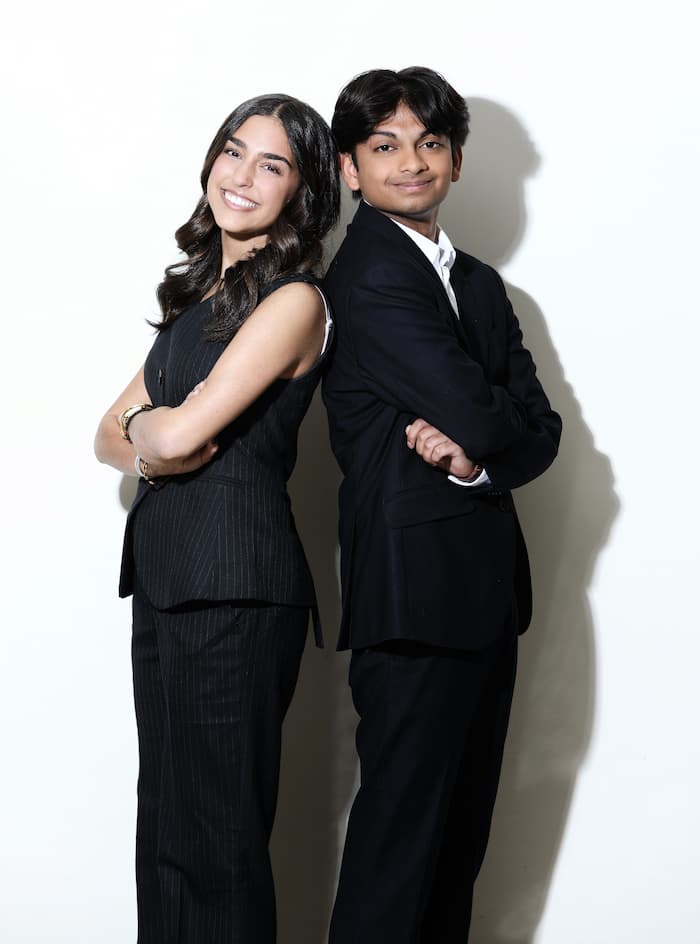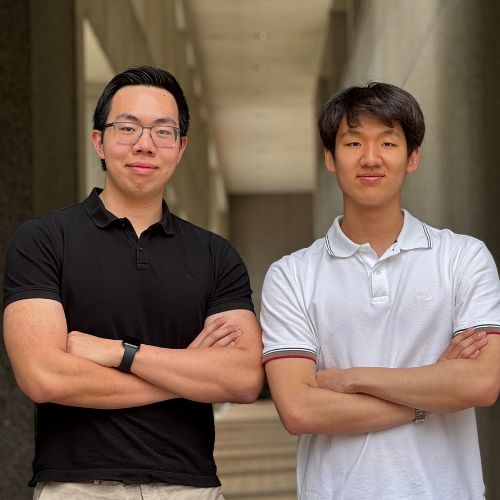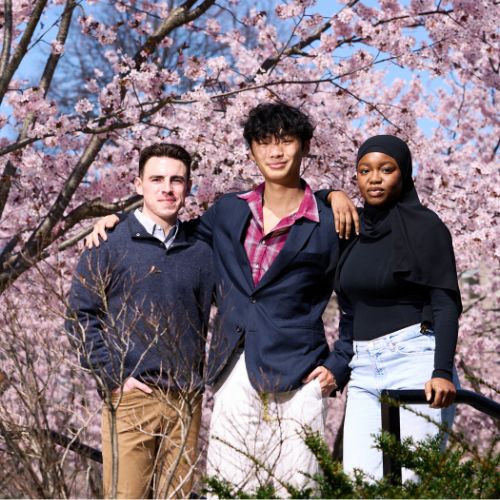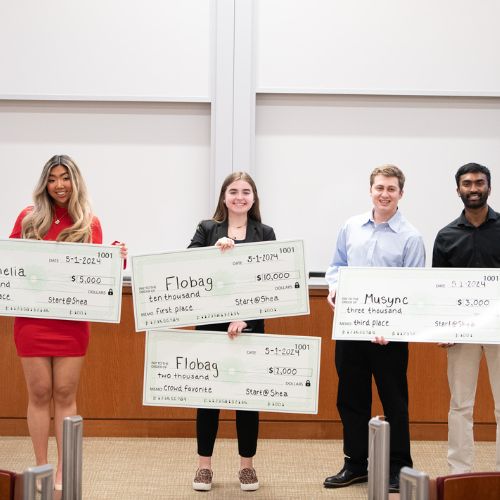Originally published in Carroll Capital, the print publication of the Carroll School of Management at Boston College. Read the June 2025 issue here.
Sophia Salamy ’27 and Aradhya Garg ’27 admit that it took many late nights to prepare the presentation that clinched them second place in the 2024 Collegiate Ethics Case Competition, but don’t worry—they had a lot of fun doing it. “You’re with people you like, so you don’t even notice,” Salamy says. “Sure, we could sleep two hours earlier, but when something clicks—when an idea hits—it’s exciting.”

Sophia Salamy ’27 and Aradhya Garg ’27
That excitement followed them to the case competition, hosted by the University of Arizona Eller College of Management last fall, where they competed with 24 other teams from universities across the US and Canada. Acting as representatives for a hypothetical lab-grown meat company, each group was tasked with arguing whether lab-grown meat would be good for the state of Arizona, economically as well as legally and ethically. Not currently sold in the US but under development, the meat is produced by cultivating animal cells in a controlled environment.
Salamy and Garg’s journey to their second-place finish began when they were first-year students. After bonding as members of the Fulton Leadership Society, the new friends won the Carroll School’s Klein Ethics Case Competition later that year, which qualified them for the national competition. “Sophia and Aradhya had great chemistry,” says Carroll School academic advisor Josephine Xiong, who helped them prepare for Arizona. “There’s a level of trust there that helps to create strong team cohesion.”
That cohesion became a cornerstone of their success. “We were able to have fun,” Garg says. “The audience and judges saw that we weren’t stressed. It made our presentation smoother.” Their presentation also integrated elements of ethical leadership and sustainability, concepts they learned about in Portico, including “how your operations could impact the world positively,” he added. They framed Arizona as a potential trendsetter, an especially fun task for Salamy, who grew up in the state. Their research showed that lab-grown meat could save billions of gallons of water, reduce emissions, and position Arizona as a leader in biotech innovation—details that clearly impressed the judges.
While they’re thrilled about the results, Salamy and Garg are most grateful they got to work together. “These presentations are not just about the work that you do, but the relationships you build,” Salamy says.





